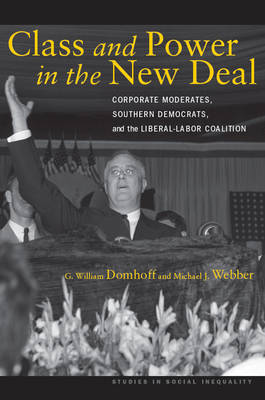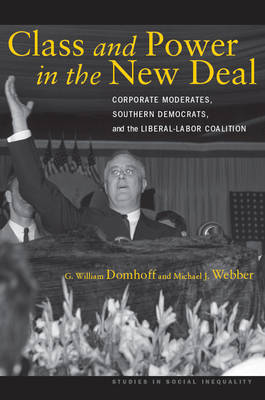
- Retrait gratuit dans votre magasin Club
- 7.000.000 titres dans notre catalogue
- Payer en toute sécurité
- Toujours un magasin près de chez vous
- Retrait gratuit dans votre magasin Club
- 7.000.0000 titres dans notre catalogue
- Payer en toute sécurité
- Toujours un magasin près de chez vous
Class and Power in the New Deal
Corporate Moderates, Southern Democrats, and the Liberal-Labor Coalition
G William Domhoff, Michael J WebberDescription
Class and Power in the New Deal provides a new perspective on the origins and implementation of the three most important policies that emerged during the New Deal--the Agricultural Adjustment Act, the National Labor Relations Act, and the Social Security Act. It reveals how Northern corporate moderates, representing some of the largest fortunes and biggest companies of that era, proposed all three major initiatives and explores why there were no viable alternatives put forward by the opposition.
More generally, this book analyzes the seeming paradox of policy support and political opposition. The authors seek to demonstrate the superiority of class dominance theory over other perspectives--historical institutionalism, Marxism, and protest-disruption theory--in explaining the origins and development of these three policy initiatives. Domhoff and Webber draw on extensive new archival research to develop a fresh interpretation of this seminal period of American government and social policy development.
Spécifications
Parties prenantes
- Auteur(s) :
- Editeur:
Contenu
- Nombre de pages :
- 304
- Langue:
- Anglais
- Collection :
Caractéristiques
- EAN:
- 9780804774536
- Date de parution :
- 29-06-11
- Format:
- Livre broché
- Format numérique:
- Trade paperback (VS)
- Dimensions :
- 150 mm x 226 mm
- Poids :
- 385 g

Les avis
Nous publions uniquement les avis qui respectent les conditions requises. Consultez nos conditions pour les avis.






